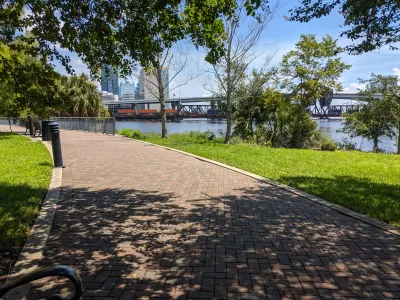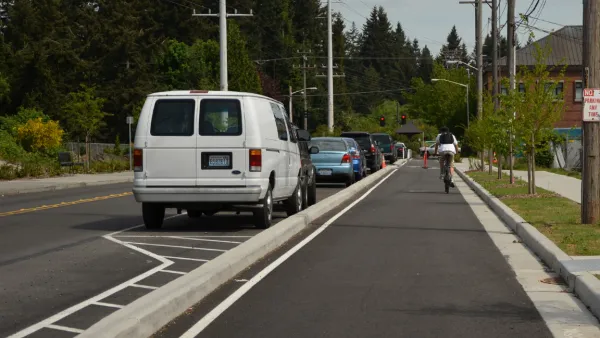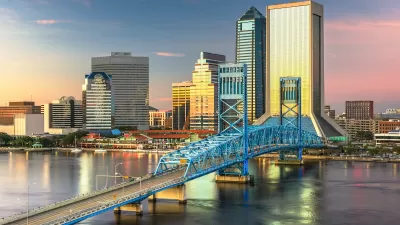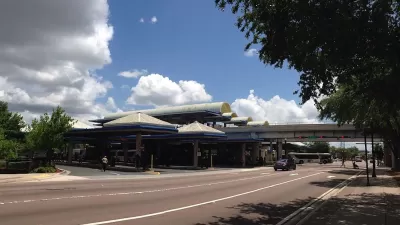The 33-mile trail will connect 14 neighborhoods and numerous community amenities around downtown Jacksonville.

The first section of Jacksonville’s Emerald Trail opened earlier this month, connecting the Brooklyn neighborhood to the S-Line rail trail through the historic LaVilla neighborhood, reports local news outlet 104.5 WOKV.
When complete, the 33.8, $184 million project will connect 14 neighborhoods, linking 16 schools, two colleges, and 21 parks, among other destinations like restaurants, retail and businesses; an additional 13 schools and 17 parks located within three blocks, according to the city’s nonprofit partner Groundwork Jacksonville. Funding for the project includes a $147 million U.S. Department of Transportation neighborhood access and equity grant and $37 million of local match funds from the city, generated through a local gas tax increase in 2021.
According to the project’s master plan, Jacksonville leaders chose to pursue the project in part to make the city more attractive for new employers and the young, educated employees they seek to hire. The Emerald Trail is expected to be completed by 2030.
FULL STORY: Jacksonville officials open first part of Emerald Trail

Planetizen Federal Action Tracker
A weekly monitor of how Trump’s orders and actions are impacting planners and planning in America.

Maui's Vacation Rental Debate Turns Ugly
Verbal attacks, misinformation campaigns and fistfights plague a high-stakes debate to convert thousands of vacation rentals into long-term housing.

Restaurant Patios Were a Pandemic Win — Why Were They so Hard to Keep?
Social distancing requirements and changes in travel patterns prompted cities to pilot new uses for street and sidewalk space. Then it got complicated.

In California Battle of Housing vs. Environment, Housing Just Won
A new state law significantly limits the power of CEQA, an environmental review law that served as a powerful tool for blocking new development.

Boulder Eliminates Parking Minimums Citywide
Officials estimate the cost of building a single underground parking space at up to $100,000.

Orange County, Florida Adopts Largest US “Sprawl Repair” Code
The ‘Orange Code’ seeks to rectify decades of sprawl-inducing, car-oriented development.
Urban Design for Planners 1: Software Tools
This six-course series explores essential urban design concepts using open source software and equips planners with the tools they need to participate fully in the urban design process.
Planning for Universal Design
Learn the tools for implementing Universal Design in planning regulations.
Heyer Gruel & Associates PA
JM Goldson LLC
Custer County Colorado
City of Camden Redevelopment Agency
City of Astoria
Transportation Research & Education Center (TREC) at Portland State University
Jefferson Parish Government
Camden Redevelopment Agency
City of Claremont





























